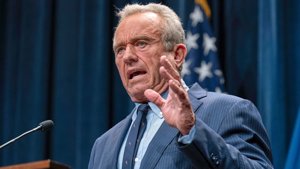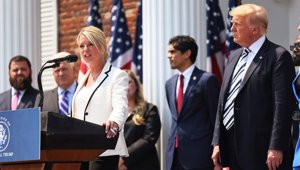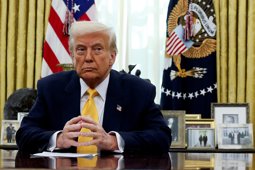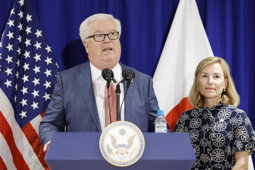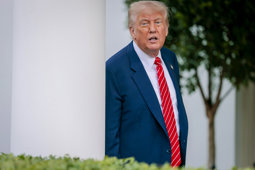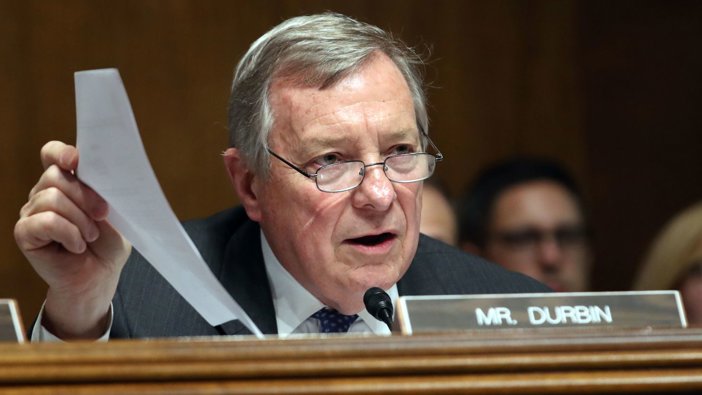
Senate Democrat Blasts Trump’s Deportation Focus Amid Border Lows
Sen. Durbin warns Trump’s mass deportation agenda diverts law enforcement from organized crime as border arrests reach historic lows.
Durbin Says Deportation Focus Endangers Crime-Fighting Efforts
Senator Dick Durbin, the top Democrat on the Senate Judiciary Committee, has sharply criticized the Trump administration’s focus on mass deportations, alleging that it is pulling vital federal resources away from the fight against organized retail theft and other major crimes. Speaking at a Senate hearing titled "Beyond the Smash and Grab: Criminal Networks and Organized Theft," Durbin argued that federal priorities have shifted under President Donald Trump, putting less emphasis on complex criminal investigations in favor of ramped-up immigration enforcement.
"Federal law enforcement also has an important role to play, but we must acknowledge this administration has announced different priorities. Instead of combating crimes like I described, the Trump administration has diverted critical resources toward the president's mass deportation agenda," Durbin told lawmakers. He pointed to reports that Homeland Security Investigations (HSI), an agency traditionally tasked with disrupting organized crime, has been redirected to support increased immigration arrests, sometimes at the expense of cases involving drugs, trafficking, or child exploitation. "Instead, [HSI] is ‘arresting gardeners.’ These are not the actions of an administration serious about combating crime," he concluded.
During the hearing, Chairman Chuck Grassley, R-Iowa, highlighted a growing trend of organized retail and supply chain crime, warning that some of the world’s most dangerous criminal organizations—including cartels and traffickers—exploit these schemes to fund their activities. Grassley noted that organized retail crime costs American families over $500 a year and cited Homeland Security investigators’ estimates that losses are climbing as criminal networks adapt. Donna Lemm of IMC Logistics testified that cargo theft alone is draining $35 billion annually from the U.S. supply chain, with thefts soaring 17,520% at her company from 2021 to 2024.
Historic Border Arrest Lows and Enforcement Results
Amid this debate, new data from U.S. Customs and Border Protection (CBP) showed border crossings and illegal entries have plummeted to record lows. In June, just 6,072 people were apprehended crossing the southern border, marking a 15% drop from previous lows. CBP Commissioner Rodney Scott credited the agency’s “relentless focus” on border enforcement for the decline, adding that no parole releases occurred in June, a significant departure from prior years. At the same time, CBP reported a 3% rise in fentanyl seizures and spikes in methamphetamine, heroin, and cocaine confiscations, signaling ongoing efforts against smuggling and trafficking.
Local officials, like Yuma Mayor Douglas Nicholls, reported calmer conditions along the border, while DHS Secretary Kristi Noem pointed to an 830% increase in assaults on ICE agents as evidence of ongoing risks faced by law enforcement. Protests and riots against federal immigration enforcement remain frequent, with calls from some lawmakers for new accountability measures, such as the VISIBLE Act, which would require agents to display visible identification.
Bipartisan Reform Emerges Amid Policy Debate
As mass deportation remains contentious, a bipartisan legislative effort is underway to overhaul the immigration system. Representatives Maria Elvira Salazar, R-Fla., and Veronica Escobar, D-Texas, have introduced the Dignity Act of 2025, offering certain illegal immigrants who arrived before 2021 the opportunity to gain up to seven years of legal status with work authorization, in exchange for restitution and strict oversight. The bill, which has attracted support from both parties, aims to strike a balance between border security and economic stability without providing amnesty or citizenship.
Salazar described the proposal as a "revolutionary bill that offers the solution to our immigration crisis: secure the border, stop illegal immigration, and provide an earned opportunity for long-term immigrants to stay here and work." Escobar highlighted the economic contributions of immigrants and called the act a “critical first step” in fixing a broken system. President Trump has acknowledged the need for flexibility for some migrant workers, particularly in agriculture, suggesting possible measures to allow temporary work permits while maintaining strong enforcement elsewhere.
The competing pressures of record-low border crossings, growing organized crime threats, and evolving reform efforts are reshaping the national conversation on immigration. Lawmakers are now faced with the challenge of balancing enforcement with accountability, while ensuring public safety and economic growth for communities across the country.

